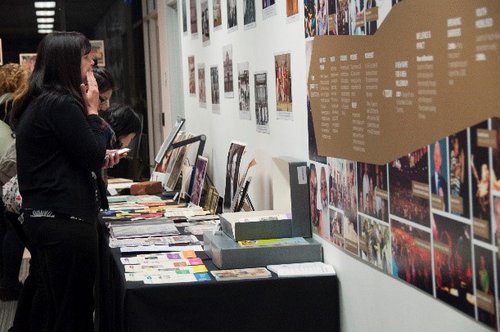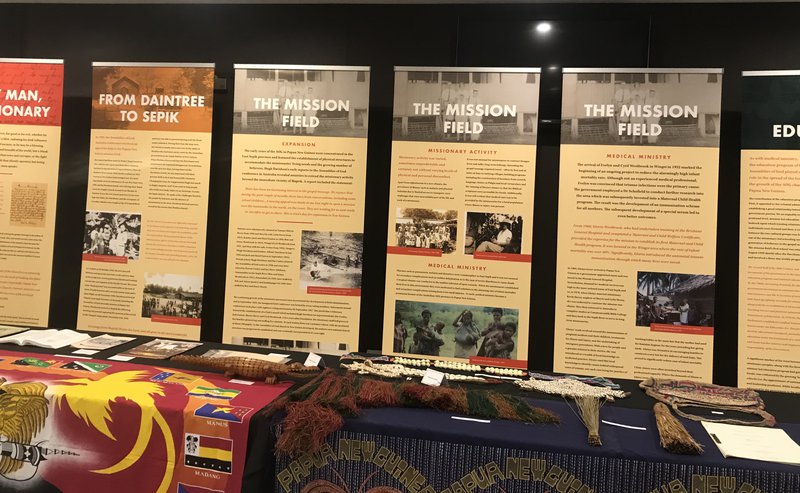Find a Course
Explore our wide range of courses available.
Studying with us
Everything you need to know about studying with us.
About
Learn more about our story, people and organisation.
Research
Research that impacts society and the world.

Although Pentecostalism is one of the fastest-growing religious movements in history, it has been relatively under-researched compared to other Christian communions. At AC, faculty and HDR candidates from across several disciplines utilise a range of methodological approaches to investigate the dynamic and fast-changing landscape of Pentecostal beliefs, practices, institutions, and their socio-cultural impact.
APSC researchers explore the place of theological ideas and biblical texts in contemporary Pentecostalism, while also addressing contemporary social issues through a Pentecostal lens. Particular areas of research concentration include the interface between biblical studies and Pentecostal theology, and the complex dynamics of spiritual experience in Pentecostal communities today. Working from a number of disciplinary and methodological approaches, APSC researchers seek to understand the theological foundations and contemporary expressions of Pentecostalism in a way that fosters informed theological engagement with social and global issues.
APSC also publishes Australasian Pentecostal Studies, Australia’s leading peer-reviewed journal in Pentecostal studies.

APSC is located at AC’s Sydney campus in a purpose-built facility that operates as both an archive and a small museum. The archive is made to expert specifications, including fireproof walls and controlled temperature and lighting. It is a professionally staffed and readily accessible facility which supports a wide range of research on the history of Pentecostal and charismatic movements in Australasia.
The Centre is home to the largest collection of Pentecostal and charismatic materials in the world, including an extensive living repository of oral sources and collections of the movement’s early literary materials. Donations by private individuals, key leaders, Pentecostal churches and mission organisations include: journals, denominational magazines, church archives, letters, diaries, photographs, slides, minute books, artefacts, 16mm films, videos, cassette tapes and vinyl records.
The collection is readily accessible for research or general interest, either onsite or via the AC Library catalogue.

Recently we were privileged to have professional conservator, Kay Söderlund, run a one-day Care of Collections workshop for the Australasian Pentecostal Studies Centre (APSC) on behalf of a Community Heritage Grant awarded to Denise Austin funded by the Australian Government and managed by the National Library of Australia. Over fifty people attended, including Alumni, Faculty and an archivist from the Parramatta Heritage Centre. Kay’s expertise in preventative conservation made for a comprehensive and insightful session. The knowledge gained will now guide the day-to-day collection handling and storage practices in the APSC. For alumni and faculty attendees, Kay’s workshop provided insight for the appropriate handling and storage of personal collections, which, in many cases will hopefully one-day become part of the University College’s heritage collection through donation or bequests.
We were incredibly blessed to have Ps Brian Banton donate Rev. Fred Van Eyk’s loose leaf preaching Bible, on the day of the workshop. Van Eyk, a South African evangelist who migrated to Australia in 1926, played a central role in the founding of the Apostolic Faith Mission of Australasia. Along with Bert Banton (Brian’s father), Van Eyk also established the Foursquare Church in Australia in 1929. Considering the significance of the donation, and the theme of the workshop, the occasion for acquiring Van Eyk’s personal preaching Bible couldn’t have been more appropriate!
Denise Austin also won a second Community Heritage Grant for a two-day Preservation Needs Assessment, undertaken by Kay. This involved an examination of the archive collection in order to provide expert advice regarding measures for further preservation of the collection. Kay had undertaken a preservation survey for the APSC in 2004, so was extremely impressed with the advancement of the centre since that time – both in terms of expanded size of the collection, as well as its storage in the new purpose-built APSC archives and museum.
We thank Kay for her invaluable contribution and also thank all of those who attended the workshop. These two events have further inspired us toward the goal of preserving Australasian Pentecostal history. We know that all those involved have gained a deeper appreciation of the wonderful collection housed in the University College’s heritage centre.